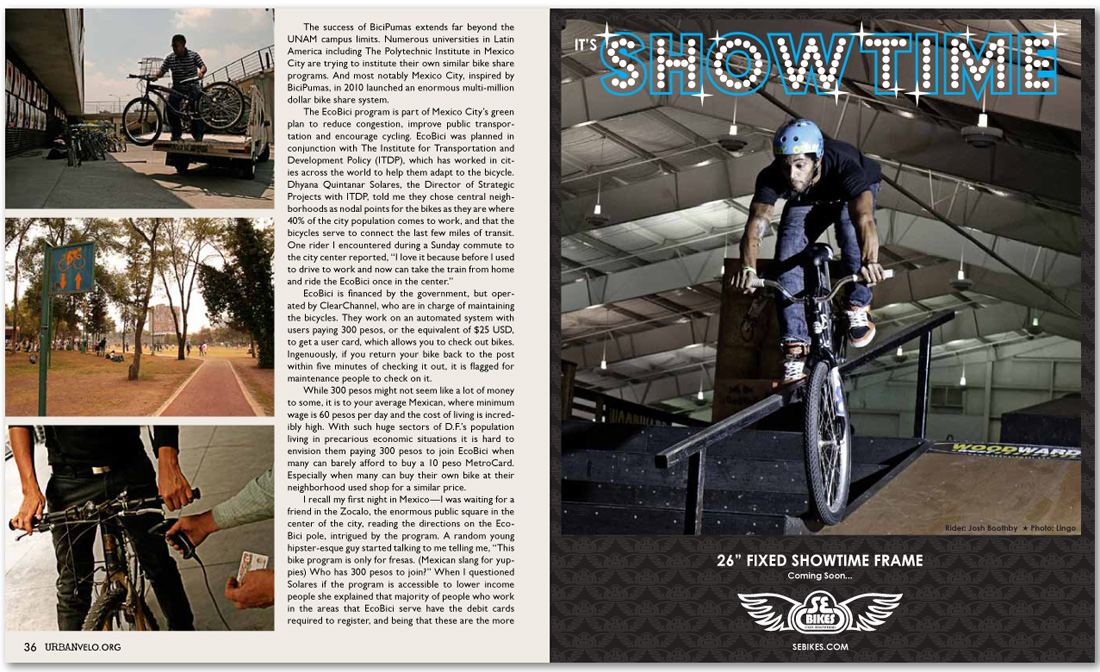


The success of BiciPumas extends far beyond the UNAM campus limits. Numerous universities in Latin America including The Polytechnic Institute in Mexico City are trying to institute their own similar bike share programs. And most notably Mexico City, inspired by BiciPumas, in 2010 launched an enormous multi-million dollar bike share system.
The EcoBici program is part of Mexico City’s green plan to reduce congestion, improve public transportation and encourage cycling. EcoBici was planned in conjunction with The Institute for Transportation and Development Policy (ITDP), which has worked in cities across the world to help them adapt to the bicycle. Dhyana Quintanar Solares, the Director of Strategic Projects with ITDP, told me they chose central neighborhoods as nodal points for the bikes as they are where 40% of the city population comes to work, and that the bicycles serve to connect the last few miles of transit. One rider I encountered during a Sunday commute to the city center reported, “I love it because before I used to drive to work and now can take the train from home and ride the EcoBici once in the center.”
EcoBici is financed by the government, but operated by ClearChannel, who are in charge of maintaining the bicycles. They work on an automated system with users paying 300 pesos, or the equivalent of $25 USD, to get a user card, which allows you to check out bikes. Ingenuously, if you return your bike back to the post within five minutes of checking it out, it is flagged for maintenance people to check on it.
While 300 pesos might not seem like a lot of money to some, it is to your average Mexican, where minimum wage is 60 pesos per day and the cost of living is incredibly high. With such huge sectors of D.F.’s population living in precarious economic situations it is hard to envision them paying 300 pesos to join EcoBici when many can barely afford to buy a 10 peso MetroCard. Especially when many can buy their own bike at their neighborhood used shop for a similar price.
I recall my first night in Mexico—I was waiting for a friend in the Zocalo, the enormous public square in the center of the city, reading the directions on the EcoBici pole, intrigued by the program. A random young hipster-esque guy started talking to me telling me, “This bike program is only for fresas. (Mexican slang for yuppies) Who has 300 pesos to join?” When I questioned Solares if the program is accessible to lower income people she explained that majority of people who work in the areas that EcoBici serve have the debit cards required to register, and being that these are the more
SE Bikes